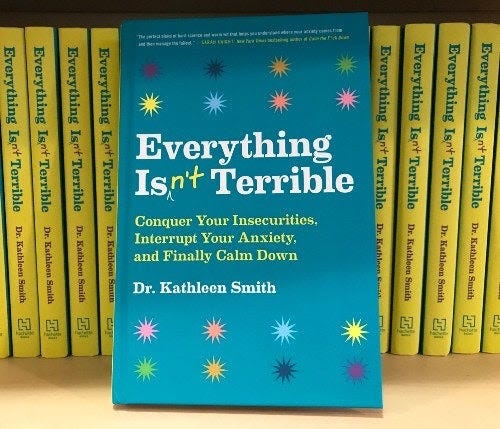When You're Too Close to the Problem
How zooming out can calm you down.
When people come to therapy, they often have a specific problem they want to fix. The trouble is, relationships rarely calm down when we put them under a microscope. Too much of an anxious focus can keep us stuck.
Dr. Bowen called this the “close-up view” and compared it to a football game. When you’re on the field, you don’t have the advantage of someone watching from the top of the stadium. You only see things from your corner. You miss the patterns.
“Close-up” problems often take the form of:
Intense marital conflict
Conflict with parents or in-laws
A child with a mental illness or behavioral issue
Being cut off from an immediate family member
Drama at work or with friends
Zooming out requires you to begin to think about the emotional playing field of your own family. What were people up against? What was the family’s capacity to deal with these challenges?
Here are some examples of questions that can help you zoom out. Think about your own family when you were growing up, as well as the previous generations.
How much were people permitted to be themselves?
How much energy was used up trying to “fix” someone?
How much capacity did people have to be genuinely interested in each other?
How much were people trying to be seen as successful, attractive, virtuous, etc.?
How did people act like they knew what was best for each other?
To what extent were disappointment and failure treated as manageable things?
What topics of discussion tended to bring out people’s immaturity?
How sensitive were people to each other’s anxiety or distress?
What were parents’ reactions to children’s choices in their career, partner, religious beliefs, etc.?
Who was cut off from the family, and how did this happen?
How much were substances like alcohol used to manage the intensity?
To what extent did people rely on third parties to communicate?
How much “self” did people have to give up to keep things calm?
Did some people tend to overfunction for others?
Was there ever pushback when people tried to take a position on something?
What secrets were kept to keep things calm?
How well were parents/caregivers able to let a child do things for themselves?
How much access did people have to extended family?
How much access did people have to family history?
In their book Family Evaluation, Dr. Kerr and Dr. Bowen talk about the difference between “controlling feelings based on suppression and toning down feelings based on thinking differently about their problem.”
Man, that’s so good I think it needs repeating. You can’t force yourself to calm down. But you might calm down when you begin to think differently about the problem.
Shifting from a blaming perspective opens things up. When you look at the multi-generational history of a family, and people’s attempts, for better or worse, to keep the ship from sinking, you can only look at your own immaturity, your own dilemmas, and say, “Well, no wonder.”
This is the beginning of change--seeing your own emotional inheritance. It helps you not be so hard on yourself and others. It keeps you curious. It gives you a chance to operate more flexibly and creatively in your relationships.
Because your inheritance doesn’t have to be your fate. But it does have to be a part of how you think about life’s challenges. Otherwise, you’ll be too close to your problems to solve them.
News from Kathleen
I was on Happy as a Mother podcast talking about overfunctioning as a mother. Keep an eye out for Part 2 next week.
For Medium’s Forge Mag, I wrote about why the happiest people “bother” their friends, and the trouble with labeling one person as the problem.
Want to support my free newsletter? Buy me a coffee to keep the thoughts flowing.
Want to read more of my writing? You can read old newsletters at my website, or buy my book Everything Isn't Terrible from Amazon, Barnes and Noble, Indiebound, or your local bookstore (best option).
Want a free anxiety journal with the book? Calming Down & Growing Up: A 30 Day Anxiety Journal includes thirty daily prompts to help you reflect on and respond to your anxious behaviors. To receive a copy, just email me your receipt of Everything Isn’t Terrible.
Email me if you’re interested in Bowen theory coaching or want me to speak to your group or workplace. Follow me on Twitter, Facebook, or Instagram.
Want to learn more about Bowen theory? Visit the Bowen Center’s website to learn more about their conferences and training programs.



